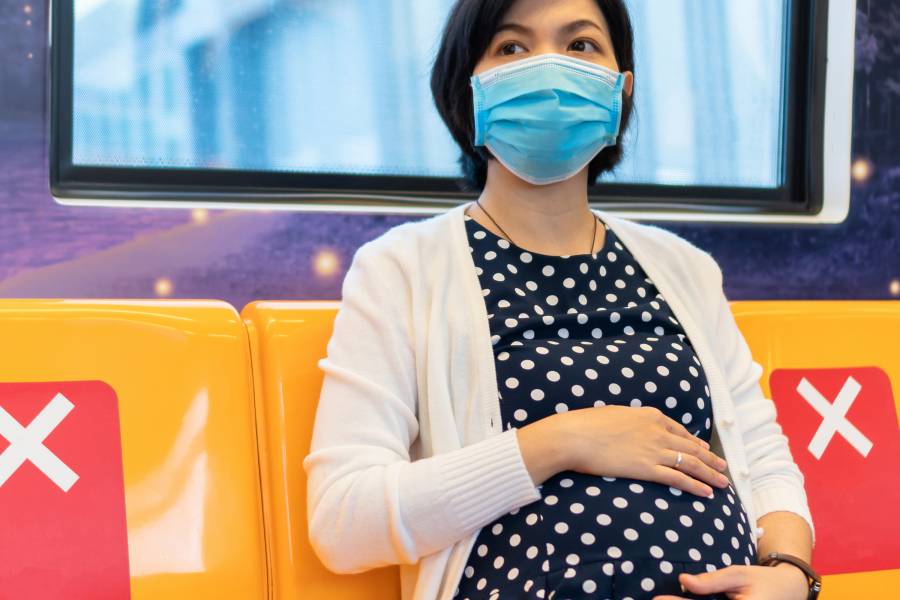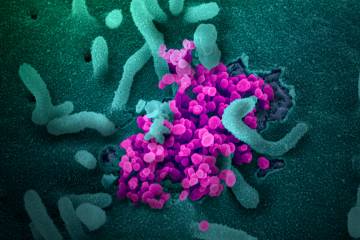In a year defined by pandemic fears, women who are pregnant must deal with an extra level of uncertainty as they contemplate the risks for themselves and their unborn children.
A late September Morbidity and Mortality Weekly Report article from the U.S. Centers for Disease Control and Prevention found that among nearly 600 pregnant women in 13 states hospitalized with COVID-19 from March 1 through August 22, 16% were admitted to an intensive care unit, 8% were put on mechanical ventilation, and 1% died.
The hopes raised by the rapid development of vaccines—with more than 150 in various stages of development—don't yet extend to pregnant women. In the U.S., they have not been allowed to participate in vaccine trials, so data specific to safety in pregnancy will be lagging and limited at best.
The quandary is a familiar one for bioethicist Ruth Faden, founder of the Johns Hopkins Berman Institute of Bioethics and its director from 1995 until 2016.
"As more and more vaccine candidates progress to later-stage trials, we want to make sure that pregnant women have fair opportunities to participate in studies that may benefit them and their babies and also that pregnant women, as a group, have a fair opportunity to benefit from vaccines when they are authorized for use outside of trials," says Faden, a professor in the Department of Health Policy and Management. "We want to make sure that their interests are taken into account from the outset so that we can generate the best possible evidence about safe and appropriate use of vaccines in pregnancy."
Faden explains that there are good reasons not to have pregnant women enrolling in the first clinical trials of a new vaccine for a novel virus, which focus on whether the vaccine is safe and if it leads to an immune response.
In practice, that means first evaluating how healthy adults respond to a vaccine candidate. Evidence on safety and side effects can help experts in maternal-fetal medicine, bioethics, and other fields make recommendations about which vaccines should be evaluated in pregnant women.
It's important to note, however, that some women in large randomized controlled trials—the gold standard of scientific research—may become pregnant during the research. That scenario is likely in the Operation Warp Speed trials, each of which have many tens of thousands of participants.
Valuable data may be gleaned from the women and their children's outcomes, but the challenge is ensuring that researchers have a plan to systematically capture data from them, says Ruth Karron, director of the Center for Immunization Research and the Johns Hopkins Vaccine Initiative at the Bloomberg School.
More information about the vaccine and the threat that COVID-19 poses to pregnant women and their babies will help experts weigh the risk of vaccination compared with the risk of being unvaccinated against a disease that can cause serious harm. "By next year, we will hopefully have a clearer picture on both sides of the equation," Karron says. "If the virus presents a major risk to pregnant women, then it's possible that pregnant women might be offered a vaccine sooner."
It's clear that when coronavirus vaccines do roll out, they will not be available to everyone all at once. Rather, vaccines will be prioritized for high-risk groups like frontline health workers. This could put pregnant women in those roles in a strange predicament: They're a priority because of their occupation, but if the vaccine isn't approved for pregnant women, they might be prevented from getting the vaccine.
"One of the things that we have always said in our work is that a woman should not be excluded from receiving a vaccine simply on the basis of being pregnant—[and] especially if she is among a group that might be prioritized for vaccine," says Carleigh Krubiner, a policy fellow at the Center for Global Development. "There should be a reasonable justification based on the risk-benefit profile. To not do that and just categorically exclude pregnant women without that justification would not be ethical."
The risk-benefit assessment is crucial. Faden likens it to a three-legged stool: what's known about the vaccine itself, the risk that pregnant women face if they become infected, and the likelihood that pregnant women will become infected.
"All these things have to be considered. Then we have to think about what's the most ethical thing to do—even when there are no good options," she says. "The important thing is that pregnant women should not be left behind as these new technologies and new vaccines are developed. Their needs should be considered."
This article originally appeared in Hopkins Bloomberg Public Health Magazine.
Posted in Health
Tagged vaccines, pregnancy, coronavirus, covid-19, covid-19 vaccine











